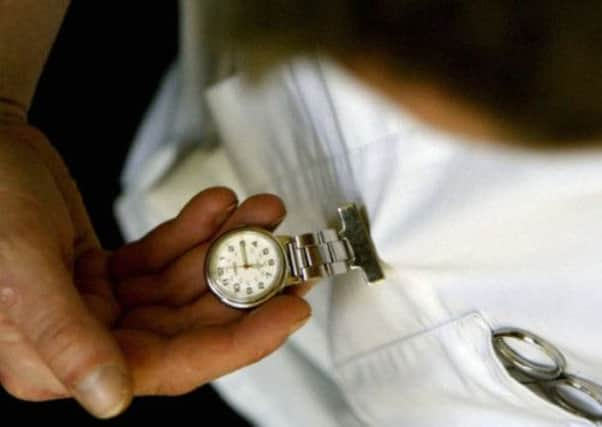Incompetent nurses no longer struck off in Scotland


Politicians and patients’ groups say they are disappointed at the decision by the Nursing and Midwifery Council (NMC), which follows a court ruling.
The ruling means the NMC can only sack a nurse or midwife deemed incompetent if they have been subject to suspension orders which are to be regularly reviewed.
Advertisement
Hide AdAdvertisement
Hide AdThe court decision also means several Scottish nurses who have been struck off for incompetence in recent years could be given their jobs back.
The Scottish Conservatives described the situation as an “incredible development” which could put patient safety at risk.
Case
The ban on striking off the staff - which applies across the UK - follows a case at the High Court in London where a midwife who allowed a baby to almost be strangled with its own umbilical cord had her ban on working as nurse overturned.
The judge - in a highly complex ruling - said nurses could not be struck off for incompetence unless they had been suspended for at least two years beforehand.
As a result of the case, an Aberdeen Royal Infirmary nurse who was struck off last year now faces a new hearing which could allow her back into the profession.
Nurse Ellen Agnes Murray was barred after she incorrectly told a patient he had cancer, when it was not confirmed he had the illness.
She challenged the decision at the Court of Session and the NMC will reconsider her case next month.
Scottish Conservative health spokesman Jackson Carlaw said: “This seems like quite an incredible development, which could lead to a greater risk to patients in the future.
Advertisement
Hide AdAdvertisement
Hide Ad“It’s absolutely critical the NMC has the power to strike off incompetent nurses.
“That is what the panel is there for, and for it to be running scared of the High Court like this is quite unacceptable.
“What appears to be happening here is a situation created where a nurse can come back to work however unsuited to the job he or she is.”
Jean Turner, of Scotland Patients Association, said: “This should be one of the watchdogs that should be looking out for patients.
“To strike someone off so they can’t be a nurse again is important, if it’s what’s right for patients.
“Patients depend on regulatory organisations getting it right.”
A Nursing Midwifery Council spokeswoman confirmed: “At the moment we can’t strike people off from lack of competence cases.
“We’re not entirely happy with it and we’re looking to try and close that gap in our powers.
Advertisement
Hide AdAdvertisement
Hide Ad“To put it in basic terms, we can’t strike anyone off in lack of competence cases.
“The [High Court] judgement was saying this isn’t a lawful sanction that can be given.”
Although the NMC retains the power to repeatedly suspend nurses, critics fear it is now far more likely incompetent nurses with good lawyers will be able to get back on to wards.
The High Court ruling followed the case of a midwife who worked at a hospital in Kent and was struck off on competence grounds in January 2012
Mercy Ngozi Okeke, a midwife at Queen Margaret’s Hospital in Sidcup, successfully challenged being struck off by her bosses despite a series of blunders including effectively “strangling” a newborn baby after she did not untangle the umbilical cord.
In February this year, Mr Justice Leggatt ruled the decision to strike her off was unlawful, adding the delay of almost five years in bringing her case to a full hearing was unreasonable.
The NMC’s own rules say a nurse must be continuously suspended for a period of two years before a striking off order can be made in competence cases.
Ms Okeke had been given a series of interim suspensions, which can be made without a full hearing, for more than four years.
But Mr Justice Leggatt ruled this did not count as being continuously suspended, and the decision was therefore unlawful.